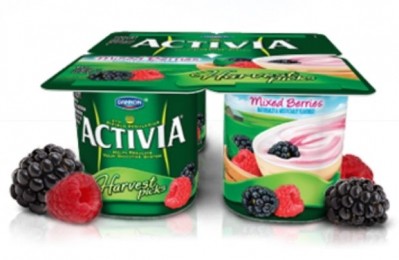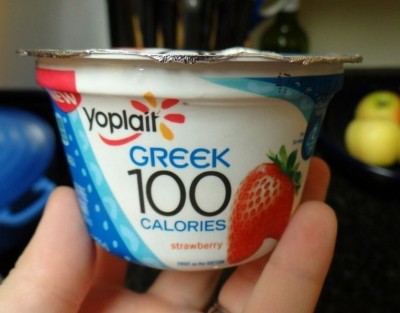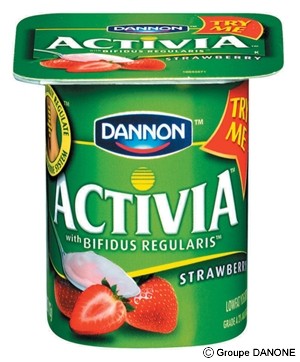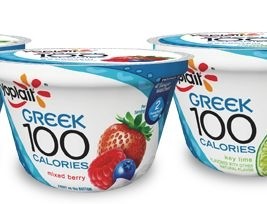Dannon slams ‘poorly informed and frivolous’ Activia yogurt identity lawsuit
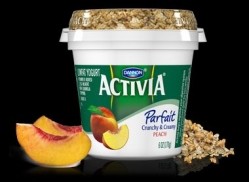
In the third class action lawsuit in six months to question whether a yogurt brand meets the legal standard of identity for yogurt in the US, plaintiff Kristie Conroy alleges that Activia yogurts are misbranded because they contain an ingredient (milk protein concentrate or MPC) that is not permitted in yogurt.
The latest complaint - filed in New York against Dannon on September 11 - follows a similar lawsuit filed in August against Cabot and a suit filed in April against General Mills and Yoplait USA.
But a Dannon spokesman said the complaint was "baseless", adding: “Activia is a yogurt and is correctly labeled. Food companies have been adding MPC under the direction of the Food and Drug Administration (FDA) since 1982. The FDA specifically states that the addition of MPCs is permitted in yogurts."
He added: "MPCs have been widely used - and widely stated as being used on pack - so the idea that consumers have been deceived is absolutely not the case.
“Activia yogurt is enjoyed by millions of people every day, and we believe the allegations in this lawsuit are poorly informed and frivolous.”
‘Activia… is not made the way yogurt is supposed to be made’
According to Conroy, the FDA’s 1981 standard of identity for yogurt sets out an exhaustive list of ingredients that can be used in yogurt, which does not include MPCs.
“Activia… is not made the way yogurt is supposed to be made. Unlike other brands, Dannon adds water and fillers to Activia in order to make a cheaper product.
“The FDA’s standard of identity for yogurt does not list water, food starch, corn starch, xanthan gum, inulin or MPCs in the list of permitted ingredients. Therefore they are prohibited.”
Regulatory limbo?
National Yogurt Association (NYA) director for regulatory and international affairs John Allan told FoodNavigator-USA that the FDA had in fact "stayed (not put into effect or enforced) the provisions of the 1981 standard that would restrict such ingredients [eg. milk protein concentrates, whey protein concentrates], pending a public hearing on the provisions questioned by multiple industry entities, which FDA has yet to hold."
He added: "As such, MPCs and WPC have been allowed to be used by the industry."
'One cannot discern which provisions the FDA currently enforces for manufacturing yogurt...'
To clear up the confusion, a citizen’s petition submitted by the NYA in 2000 called on the FDA to formally remove the provisions restricting/prohibiting the use of such ingredients in a revised standard of identity, said Allan.
As things stand, the industry has been left in a kind of limbo, explained NYA bosses in the petition: "Since finalizing the yogurt standards and staying many provisions, FDA has not held hearings on the stayed provisions, nor indicated plans to conduct hearings.
"The existence of stayed provisions creates multiple gaps in the standard, for which no guidelines exist. In addition, industry practices and FDA policies often differ from, or are not explicit in, the standards. Thus, on consulting the standards, one cannot discern which provisions FDA currently enforces for manufacturing yogurt."
FDA 2009 proposed rule proposes changing the rules on yogurt identity
The FDA responded in 2009 with a proposed rule that said the agency was “proposing to revoke its regulations on the standards of identity for lowfat yogurt and nonfat yogurt and amend the standard of identity for yogurt in numerous respects” partly in response to the NYA's petition.
The rule would "permit the use of reconstituted milk and whey protein concentrate as standard dairy ingredients… and provide for the use of any milk-derived ingredients as optional dairy ingredients”.
An FDA spokesman said: "FDA has not yet issued a final rule. The agency has received many comments on the proposed rule and will take them into consideration in preparing the final rule."
The lawsuits against Agri-Mark/Cabot and Dannon were both filed by legal firm Bursor & Fisher, while the complaint against General Mills was filed by Faruqi & Faruqi.
